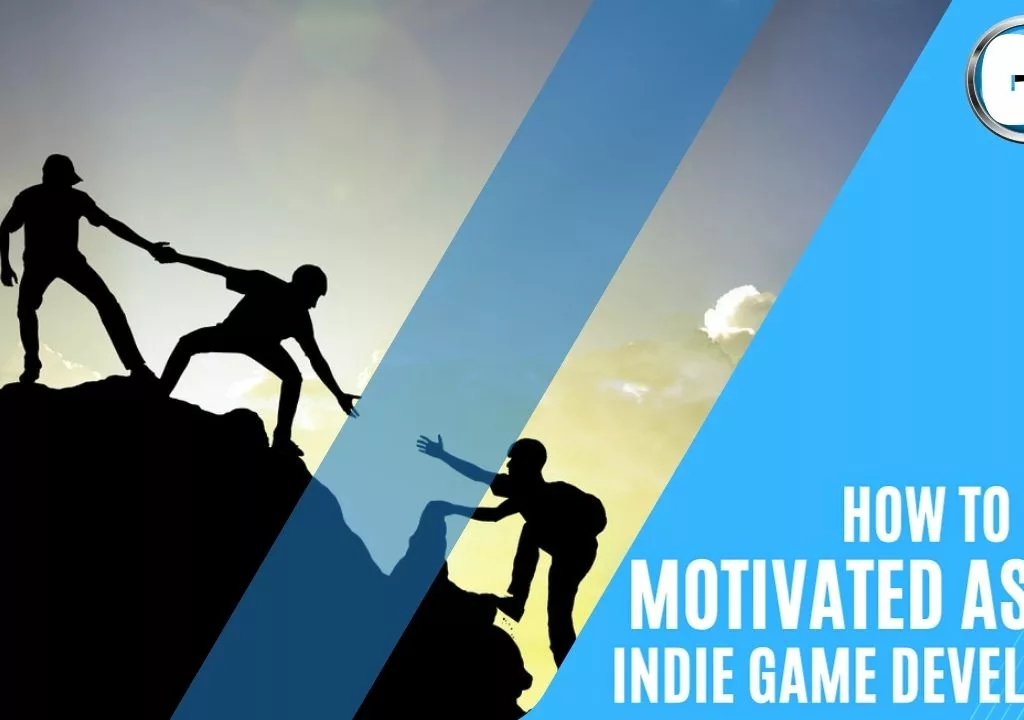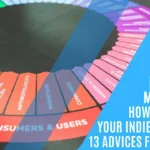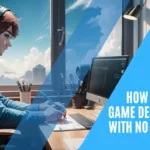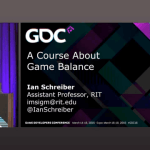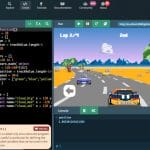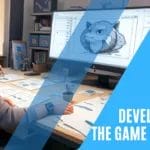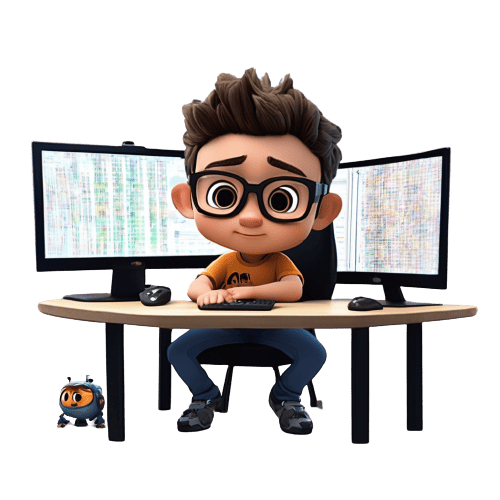You have always dreamed about becoming an indie game developer, and you have been hard working in the last months to make your first game, but things are not like what you thought they would be, and you start to become doubtful. So, How to stay motivated as an indie game developer? In this article we will try to help you keep a high motivation or at least understand what is happening to you, as to be able to manage it correctly and drive forward with your game and your dreams.
Content:How to stay motivated as an indie game developer

Section I: Introduction to How to stay motivated as an indie game developer
As an indie game developer, you embark on a thrilling journey filled with both challenges and rewards. The freedom to express your creativity and bring your unique visions to life is an exhilarating experience. However, the path of an indie game developer is not without its obstacles. Limited resources, fierce competition, and the constant need for innovation can sometimes weigh you down.
In the face of these challenges, motivation becomes an invaluable ally. It is the fuel that drives your passion, propels your projects forward, and sustains you through the ups and downs of game development. Motivation is what keeps you focused, determined, and committed to turning your dreams into reality.
In this article, we will explore the importance of motivation in game development and provide you with valuable tips and strategies to stay motivated as an indie game developer. Whether you’re just starting your journey or have been in the industry for a while, we believe that maintaining a strong sense of motivation is essential for your success and satisfaction as a game developer.
Throughout the following sections, we will delve into different aspects of motivation, including its role in productivity, creativity, and overall success. We will examine the different sources of motivation and help you understand what fuels your passion for game development. Additionally, we will provide you with practical advice on setting clear goals, finding a balance between passion projects and commercial opportunities, cultivating a supportive network of fellow developers, and taking care of your physical and mental well-being.
Furthermore, we will address common challenges indie game developers face and offer strategies for overcoming self-doubt, avoiding burnout, and navigating project setbacks. We will also explore how you can leverage external sources of motivation, such as participating in game jams, attending conferences, learning from success stories, and seeking feedback.
Our main objective with this article is to equip you with the tools and insights needed to maintain your motivation and thrive as an indie game developer. By implementing the tips and strategies we provide, you will be able to navigate the often challenging landscape of game development with resilience, passion, and unwavering motivation.
So, let’s dive in and discover how you can stay motivated, overcome obstacles, and continue making your mark in the exciting world of indie game development.

Section II: The Importance of Motivation / self-motivation in Indie Game Development
Motivation plays a pivotal role in the world of indie game development, exerting a powerful influence on productivity, creativity, and overall success. When you’re motivated, you possess the drive and determination necessary to push your projects forward, overcome challenges, and achieve your goals.
One key aspect of motivation is its impact on productivity. As an indie game developer, you often work with limited resources, relying on your own skills and abilities to bring your vision to life. In this context, motivation becomes the driving force behind your productivity. It energizes you to allocate your time and efforts effectively, enabling you to make the most out of the resources at your disposal. Motivation helps you focus on the tasks at hand, manage your time efficiently, and consistently make progress towards completing your game projects.
In addition to productivity, motivation fosters creativity. Game development is an art form that thrives on innovation and originality. When you’re motivated, your mind is inspired, and your creative juices flow freely. Your passion for game development fuels your imagination, allowing you to generate fresh ideas, create engaging gameplay mechanics, and design captivating visuals. Motivation enables you to think outside the box, experiment with new concepts, and develop unique gaming experiences that resonate with players.
The unique challenges faced by indie game developers make motivation even more critical. Unlike larger game development studios, indie developers often grapple with limited budgets, access to resources, and marketing reach. Additionally, the competitive nature of the industry can be daunting, with hundreds of games releasing every day across various platforms. Motivation serves as a powerful ally in the face of these challenges. It helps you maintain a resilient mindset, driving you to find innovative solutions, leverage your strengths, and push through obstacles. With unwavering motivation, you can navigate the competitive landscape and carve out your niche in the industry.
Moreover, motivation keeps you focused on your game development projects. It provides you with a clear sense of purpose and direction, preventing distractions from derailing your progress. As an indie game developer, it’s easy to get overwhelmed with the multitude of tasks involved in game development, from coding and designing to marketing and community management. However, a strong motivation helps you maintain an unwavering focus on your goals, ensuring that your efforts align with your ultimate vision for your game. It keeps you on track, allowing you to make consistent progress and avoid losing sight of what truly matters.
In summary, motivation is vital in indie game development as it drives productivity and fuels creativity. It allows you to navigate the unique challenges faced by independent developers while staying focused on your game development projects. By nurturing and maintaining a strong sense of motivation, you empower yourself to overcome obstacles, maximize your potential, and ultimately achieve success as an indie game developer.

Section III. Understanding Motivation in Game Development and overcoming challenges
Intrinsic motivation refers to the internal drive and enjoyment that comes from within oneself. For indie game developers, intrinsic motivation often stems from their passion for games and the desire to create something meaningful and enjoyable. The love for the medium and the joy of seeing their ideas come to life can be powerful sources of motivation. Additionally, the opportunity for artistic expression and the ability to showcase their creativity through game development can also serve as intrinsic motivators.
Extrinsic motivation, on the other hand, comes from external factors and rewards. While intrinsic motivation may be the primary driving force for many indie game developers, extrinsic motivation can still play a role in keeping them motivated. This can include factors such as financial rewards, recognition from peers and players, and the potential for career growth. External sources of motivation can provide validation and a sense of accomplishment, which can further fuel the drive to continue developing games.
Intrinsic and extrinsic motivation both play important roles in game development.
Intrinsic motivation refers to the internal drive and enjoyment that comes from the process of game development itself. This can include the satisfaction of problem-solving, the joy of creating something unique, and the fulfillment of artistic expression. Intrinsic motivation is crucial for maintaining long-term motivation and passion for game development.
Extrinsic motivation, on the other hand, comes from external rewards or incentives. This can include financial gain, recognition from peers or players, and the satisfaction of completing a project. While extrinsic motivation can be helpful in providing short-term boosts, it is important to also cultivate intrinsic motivation to sustain long-term motivation and creative fulfillment.
Indie game developers often find motivation through their passion for games. Their love for the medium, the experiences it can provide, and the desire to contribute something meaningful to the gaming community can be strong motivating factors. Additionally, the opportunity for artistic expression and personal growth can also be powerful sources of motivation for indie developers.
Understanding the “why” behind game development is essential for maintaining motivation. Knowing your purpose and the underlying reasons for pursuing game development can help you stay focused and committed, especially during challenging times. Ask yourself questions like: What do you hope to achieve through game development? What impact do you want your games to have on players? How does game development align with your values and personal goals? Reflecting on these questions can help you connect with your purpose and fuel your motivation.
Personal growth is another significant source of motivation for indie game developers. The constant learning and improvement that come with game development can be highly rewarding and satisfying. The ability to acquire new skills, overcome challenges, and see noticeable progress can be incredibly motivating. The pursuit of personal growth and the satisfaction that comes from continuously honing one’s craft can keep indie game developers motivated and eager to push their boundaries.
It’s important to note that motivation can vary from person to person, and different developers may be motivated by different factors. Some may prioritize financial success, while others may be more focused on artistic expression or personal fulfillment. Understanding one’s own motivations and aligning them with their game development goals can help maintain a strong sense of motivation throughout the journey.
By recognizing and nurturing both intrinsic and extrinsic motivation, understanding your “why,” and staying connected to your passion, you can cultivate a strong sense of motivation that will drive you forward in your game development journey.

Section IV. Tips for Staying Motivated as an Indie Game Developer
1. Set clear goals: Setting specific and achievable goals can provide a sense of direction and purpose. Break down larger goals into smaller, manageable tasks to maintain a sense of progress and accomplishment.
2. Find a supportive community: Surround yourself with like-minded individuals who share your passion for game development. Join online forums, attend meetups or conferences, and connect with other indie game developers. Having a supportive community can provide encouragement, motivation, and valuable feedback.
3. Take breaks and practice self-care: Game development can be demanding and time-consuming. It’s important to take regular breaks and prioritize self-care to avoid burnout. Engage in activities that recharge you, such as exercising, spending time with loved ones, or pursuing other hobbies.
4. Celebrate milestones and successes: Acknowledge and celebrate your achievements, no matter how small. Recognizing your progress and accomplishments can boost motivation and provide a sense of validation.
5. Embrace failure as a learning opportunity: Game development is a journey filled with challenges and setbacks. Instead of getting discouraged by failures, view them as learning opportunities. Analyze what went wrong, make adjustments, and use the experience to grow and improve.
6. Seek inspiration from other games and developers: Explore and play a variety of games to stay inspired and informed about industry trends. Follow successful indie game developers and learn from their experiences and strategies. Drawing inspiration from others can help spark creativity and motivation.
7. Keep learning and improving: Game development is a constantly evolving field, so it’s essential to stay up-to-date with new technologies, tools, and techniques. Continuously learning and improving your skills can contribute to a sense of growth and progress, which can be highly motivating.
8. Stay organized and manage your time effectively: Develop a system for organizing your tasks, deadlines, and priorities. Effective time management can help reduce stress, increase productivity, and create a sense of control over your work.
9. Seek feedback and iterate: Regularly seek feedback from playtesters, peers, and the gaming community. Constructive criticism can help you identify areas for improvement and refine your game. Embracing the iterative process can keep you motivated by seeing your game evolve and become better over time.
10. Stay connected to your passion: Remind yourself of why you started game development in the first place. Stay connected to your love for games and the impact you want to have on players. Surround yourself with reminders of your passion, such as artwork, quotes, or gameplay.

A. Setting Clear Goals and Milestones.
A fundamental strategy for staying motivated as an indie game developer is setting clear goals and milestones. By defining specific, measurable, achievable, relevant, and time-bound (SMART) objectives, you provide yourself with a roadmap to follow and a sense of purpose throughout your game development journey.
To begin, establish overarching goals for your game project. Consider what you want to achieve in terms of gameplay, mechanics, story, visuals, or even commercial success. Make sure your goals are specific and well-defined. For example, instead of having a general goal of “create a fun game,” you can set a more specific goal like “develop a puzzle game with unique mechanics that challenge players’ problem-solving skills.”
Once you have established your main goals, break them down into smaller, manageable milestones. These milestones act as checkpoints along the way, allowing you to track your progress and maintain your motivation. Each milestone should be specific and quantifiable, providing you with clear indications of your achievements. For example, a milestone could be “complete the character design phase” or “implement the first level of the game.”
By breaking down larger goals into smaller milestones, you create a sense of accomplishment as you achieve each milestone. This sense of progress can be highly motivating, as it provides tangible evidence of your advancement towards your larger objectives. Celebrate and reward yourself when you reach these milestones, as it can further reinforce your motivation and drive.
Moreover, it’s important to attach realistic timelines to your goals and milestones. Set deadlines for each milestone and allocate your time and resources accordingly. While it’s crucial to challenge yourself, be sure to set achievable targets that take into account other commitments or potential setbacks. Unrealistic timelines can lead to frustration, burnout, and a decline in motivation. Balance your ambition with a practical understanding of your capabilities and the resources available to you.
Regularly reviewing and reassessing your goals and milestones is also beneficial. As you progress and gain more insights during the development process, you may need to adjust or refine your objectives. Embrace flexibility and adaptability, understanding that priorities and circumstances can change. Regularly evaluate your goals and milestones to ensure they remain relevant and aligned with your vision for your game.
In summary, setting clear goals and milestones is an essential practice for staying motivated as an indie game developer. By defining specific objectives and breaking them down into smaller, attainable milestones, you establish a roadmap that guides your progress and maintains your motivation. Keep your goals SMART, regularly reassess them, and celebrate your achievements along the way. With this approach, you’ll be empowered to stay focused, measure your progress, and ultimately bring your game development aspirations to fruition.
B. Balancing Passion Projects and Commercial Opportunities
As an indie game developer, your passion for creating games is undoubtedly one of your driving forces. While it’s important to follow your creative instincts and pursue projects you’re truly passionate about, it’s also essential to consider the commercial viability of your game ideas. Balancing your passion projects with potential revenue-generating opportunities is a key to long-term motivation and sustainable success.
Following your passion allows you to pour your heart and soul into your game projects, creating experiences that genuinely resonate with you and potentially with players as well. However, it’s crucial to assess the market and audience demand for your ideas. Conduct market research, analyze trends, and evaluate the competition to identify opportunities that align with your passions. Look for ways to infuse your unique creative vision into concepts that have commercial potential. By striking a balance between passion and commercial viability, you increase the chances of reaching a wider audience and achieving financial success.
To achieve this balance, consider taking on both passion projects and commercial ventures. Passion projects can serve as a creative outlet, enabling you to explore innovative ideas and push boundaries. Use them as opportunities to experiment, learn, and grow as a developer. Commercial projects, on the other hand, can help generate revenue and provide stability for your indie game development endeavors. Find a mix that works for you, allocating resources accordingly to ensure a healthy balance between pursuing your artistic vision and catering to market demands.
C. Cultivating a Supportive Community and Network
Developing games as an indie developer can be a solitary pursuit, but it’s essential to cultivate a supportive community and network. Connecting with fellow indie game developers, both online and offline, can have significant benefits for your motivation, growth, and overall success.
By joining game development communities, forums, and social media groups, you gain access to a wealth of knowledge, experiences, and insights. Engage with other developers, ask for advice, and share your own experiences. The sense of camaraderie and support within these communities can provide invaluable motivation, encouragement, and inspiration during challenging times.
Attending game development conferences, meetups, and other industry events allows you to network with like-minded individuals, establish connections, and potentially form partnerships. Collaborating with others on projects or sharing resources and insights can further fuel your motivation and broaden your horizons within the game development community.
D. Taking Care of Physical and Mental Well-being
Indie game development can be demanding and intense, often leading to high levels of stress and the potential for burnout. To stay motivated and sustain your creative energy, it’s crucial to prioritize your physical and mental well-being.
Make self-care a priority in your routine. Engage in regular exercise, which not only improves your physical health but also enhances your mental well-being, boosts creativity, and reduces stress. Practice proper nutrition by fueling your body with balanced meals and staying hydrated. Pay attention to your sleep habits, ensuring you get enough rest to recharge your mind and body.
Managing stress and maintaining a healthy work-life balance is equally important. Set boundaries and establish a structured schedule to avoid overworking yourself. Take breaks when needed, both during your workday and throughout your game development journey. Engage in hobbies and activities unrelated to game development to give your mind a break and foster a sense of relaxation.
E. Experimenting with Creative Techniques and Approaches
To keep your motivation and creativity flowing as an indie game developer, embrace the notion of experimentation. Don’t be afraid to explore new ideas, technologies, and development methodologies. Thinking outside the box and approaching game development from different angles can lead to unique and innovative experiences.
Experimenting allows you to challenge conventional norms, discover novel solutions to problems, and find your own distinct voice in the gaming industry. Embrace new technologies and tools that can streamline your development process and unlock new possibilities. Adopt agile development methodologies, iterate on your designs, and be open to feedback from players and fellow developers.
By embracing a mindset of exploration and experimentation, you tap into the boundless potential of your creativity, continually pushing the boundaries of what you can achieve as an indie game developer.
In summary, staying motivated as an indie game developer requires maintaining a balance between passion projects and commercial opportunities, cultivating a supportive community, taking care of your physical and mental well-being, and embracing creative experimentation. By incorporating these tips into your game development journey, you’ll nurture your motivation, unleash your creative potential, and pave the way for long-term success in the indie gaming industry.
Section V. Overcoming Challenges and Maintaining Motivation
A. Addressing Self-Doubt and Imposter Syndrome
As an indie game developer, it’s common to face various challenges along your journey, including self-doubt and feelings of inadequacy. These challenges can dampen your motivation and hinder your progress. However, by implementing strategies to manage self-doubt and foster self-belief, you can overcome these obstacles and maintain your motivation throughout your game development endeavors.
Recognize that self-doubt is a normal part of the creative process. Many successful developers have experienced moments of uncertainty and questioned their abilities. Understand that these feelings often stem from the passion and dedication you have for your craft and are not indicative of your actual capabilities.
To manage self-doubt, focus on your strengths and past achievements. Reflect on the progress you’ve made and the obstacles you’ve overcome thus far. Surround yourself with a supportive community of fellow developers who can offer encouragement and perspective. Seeking validation from others who understand the challenges of game development can help affirm your skills and build confidence.
Challenge your negative thoughts and replace them with positive affirmations. Keep a journal of your achievements and positive feedback from players or mentors. Regularly revisit this journal to remind yourself of your capabilities and progress. Embrace a growth mindset and view failures as opportunities for learning and growth. Remember that no successful developer has achieved mastery without encountering setbacks and learning from them.
B. Dealing with Burnout
Burnout is a common issue in the game development industry due to the demanding nature of the work and the pressure to meet deadlines and expectations. It can drain your motivation and leave you feeling emotionally and physically exhausted. To maintain your motivation and prevent burnout, it’s crucial to prioritize self-care and implement practical strategies.
Recognize the signs of burnout, such as chronic fatigue, loss of passion, decreased productivity, and emotional exhaustion. If you notice these symptoms, it’s essential to take proactive steps to prevent or mitigate burnout.
Create a structured schedule that allows for breaks and downtime. Break your work into manageable tasks and set realistic goals to avoid feeling overwhelmed. Prioritize self-care activities, such as regular exercise, relaxation techniques, and hobbies unrelated to game development. Engage in activities that recharge your creative energy and provide a much-needed mental break.
Set boundaries to protect your time and energy. Learn to say no to excessive workloads or requests that might overburden you. Foster effective communication with your team or collaborators, expressing your limitations and seeking support when needed. Delegate tasks when appropriate and remember that collaboration is essential in avoiding burnout.
Seek support from your community. Connect with fellow developers, friends, or mentors who can empathize with your challenges. Sharing experiences and concerns can provide a sense of validation and support. Join online forums or local game development groups to engage with others facing similar challenges and gain different perspectives.
Setbacks are an inherent part of game development. Whether it’s a technical issue, a design flaw, or unexpected market trends, setbacks can be frustrating and demotivating. However, with the right mindset and strategies, setbacks can be valuable learning experiences and catalysts for growth.
When faced with a setback, it’s important to acknowledge and embrace the setback as an opportunity for improvement. Take a step back to assess the situation objectively. Analyze the causes of the setback and identify the lessons that can be learned. Identify where things went wrong, and brainstorm solutions or alternative approaches to overcome the obstacles.
Seek constructive feedback from players, fellow developers, or mentors. Feedback can provide valuable insights and fresh perspectives that help you refine your game and make it stronger. Embrace criticism as a chance to improve and adapt your project to better meet the needs and expectations of your audience.
Maintain a proactive and solution-oriented mindset. Break down the problem into smaller, manageable tasks to make progress easier. Celebrate small victories and milestones along the way to maintain motivation and build momentum.
Remember that setbacks are temporary and do not define your overall success as a developer. Stay patient, persevere, and maintain your passion for creating games. Overcoming setbacks is a testament to your resilience and determination as an indie game developer.
In summary, overcoming challenges and maintaining motivation as an indie game developer involves addressing self-doubt and imposter syndrome, dealing with burnout through self-care and boundary-setting, and navigating project setbacks by embracing a growth mindset, seeking feedback, and finding solutions. By implementing these strategies, you can navigate the ups and downs of game development, stay motivated, and continue to pursue your passion for creating innovative and captivating games.
Section VI. Leveraging External Sources of Motivation
A. Participating in Game Jams, Conferences, and Communities
In the world of game development, finding external sources of motivation and inspiration are crucial. Participating in game jams, attending game development conferences, and engaging with online communities can provide a steady stream of motivation and creativity.
- Game Jams Game jams are time-limited events where developers come together to create games based on a specific theme or prompt. These events provide a unique and intense environment that can spark motivation and fuel creativity. Here are some benefits of participating in game jams:
a. Ignites Creativity: The time pressure and limited scope of a game jam challenge developers to think outside the box and come up with innovative ideas. This can help break free from creative blocks and propel motivation.
b. Promotes Rapid Iteration: Game jams encourage quick prototyping and iteration. By working with tight deadlines, developers can experiment with new mechanics, take risks, and learn from the feedback received during the jam.
c. Fosters Collaboration: Collaborating with fellow developers during a game jam not only fosters a sense of camaraderie but also provides an opportunity to learn from others. Collaborative work can lead to new ideas, insights, and increased motivation.
- Game Development Conferences Attending game development conferences offers several advantages for indie developers looking to boost their motivation and network with industry professionals. Here’s why you should consider attending conferences:
a. Networking Opportunities: Conferences bring together developers, industry professionals, and experts under one roof. Networking with like-minded individuals can lead to collaborations, partnerships, and valuable connections that can fuel your motivation and career growth.
b. Learning from Experts: Conferences often feature talks, panels, and workshops conducted by experienced developers and industry leaders. These sessions provide insights, tips, and lessons from their firsthand experiences, inspiring and guiding your own game development journey.
c. Staying Current with Trends: Conferences are a hub of information where you can learn about the latest trends, technologies, and best practices in the industry. Keeping up with these trends can help you stay motivated, relevant, and ahead of the curve.
- Online Communities and Forums Engaging with online communities and forums dedicated to game development can be a game-changer in terms of motivation and support. Here’s why you should actively participate in these communities:
a. Connection with Like-minded Individuals: Online communities provide a platform to connect with other developers who share your passion and struggles. Sharing ideas, seeking advice, and offering support can foster a sense of belonging and keep your motivation levels high.
b. Feedback and Collaborative Learning: Engaging with the community allows you to receive feedback on your work, which can be a valuable source of motivation. Additionally, providing feedback to others not only helps them but also deepens your understanding of game development and inspires you to improve your own skills.
c. Access to Resources and Opportunities: Communities often share valuable resources, such as tutorials, assets, and job opportunities. Taking advantage of these resources can enhance your skills, expand your network, and open up new doors for your game development journey.
B. Learning from Success Stories and Established Indie Developers
Success stories of indie game developers who have overcome challenges and achieved remarkable success can be incredibly inspiring and motivating. Learning from their experiences helps you navigate your own game development journey more effectively. Here’s why it’s important to learn from success stories and established developers:
- Inspiring Examples: Success stories highlight the triumphs and achievements of indie game developers who have gone through similar struggles. Their journeys serve as beacons of hope, showing that success is attainable with the right mindset, perseverance, and dedication.
- Insights and Lessons: By studying success stories, you gain valuable insights into the strategies, approaches, and tactics that led to their achievements. Understanding what worked for them helps you identify potential pitfalls, leverage successful strategies, and adapt them to your own game development journey.
- Learning from Experienced Developers: Established indie developers and industry leaders have acquired a wealth of knowledge and experience. Learning from them can accelerate your growth, help you avoid common mistakes, and provide you with the tools and guidance to thrive in the industry.
C. Utilizing Feedback, Positive Reviews, and Rewards

Feedback, positive reviews, and rewards play a significant role in motivating game developers. They provide validation, encouragement, and direction for improvement. Here are ways to utilize feedback, positive reviews, and rewards effectively:
- Embracing Constructive Feedback: Constructive feedback is essential for improvement. Seek feedback from playtesters, fellow developers, and your target audience. Use their suggestions and insights to refine your game, overcome challenges, and boost motivation by knowing you’re on the right path.
- Harnessing Positive Reviews: Positive reviews highlight the strengths and successes of your game. Celebrate these moments and use them as motivation to keep pushing forward. Displaying positive reviews on your website, social media platforms, or game store pages helps build credibility and attract more players.
- Interacting with Players: Engaging with players allows you to build a community around your game and foster a sense of connection. Respond to their comments, address their concerns, and show appreciation for their support. This interaction not only motivates you but also forms a loyal player base that can provide invaluable feedback and word-of-mouth promotion.
- Rewarding Achievements: Celebrate your accomplishments, both big and small. Acknowledge milestones such as completing a difficult level, securing funding, or earning positive reviews. Treat yourself or your team to rewards to recognize the hard work and dedication that led to these achievements.
In summary, leveraging external sources of motivation involves participating in game jams, attending game development conferences, and engaging with communities. Learning from success stories and established indie developers inspires, guides, and helps you adapt successful strategies. Utilizing feedback, positive reviews, and rewards promotes improvement, validation, and a sense of progress. By tapping into these external sources, you can enhance your motivation, creativity, and overall game development journey.
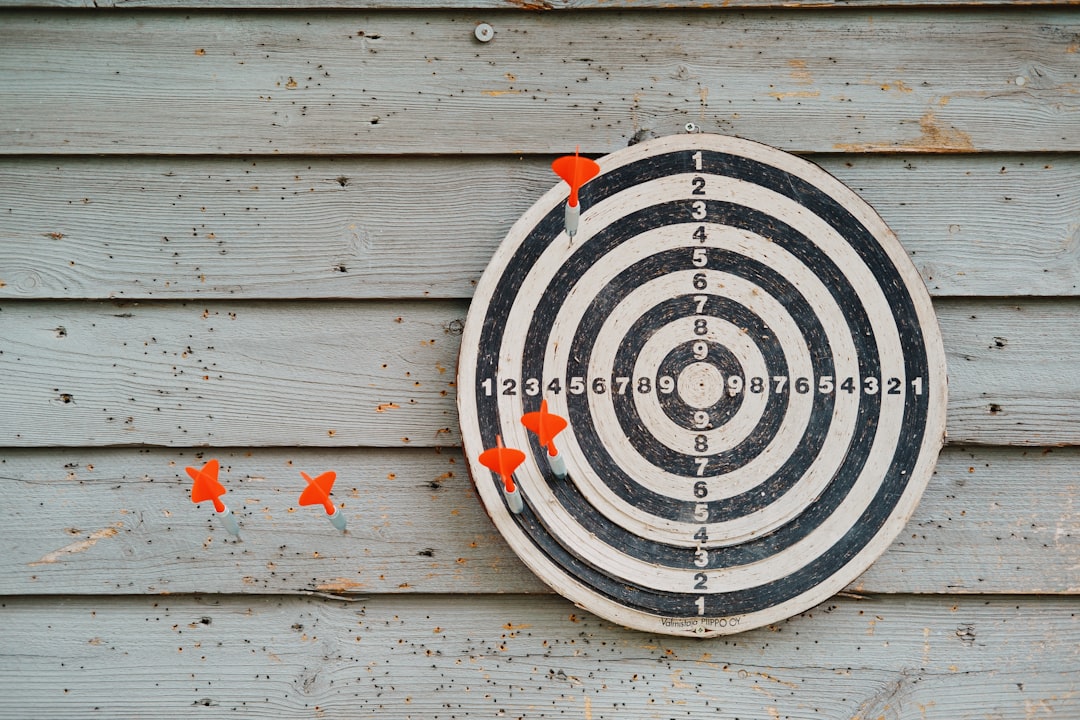
Section VII. Conclusion How to stay motivated as an indie game developer
Motivation is undeniably one of the most critical factors in indie game development. Throughout this article, we have explored various strategies and external sources that can spark and sustain motivation in your game development journey. Let’s recap the key tips and strategies discussed:
- Understanding the Importance of Motivation: We’ve highlighted how motivation serves as the driving force behind your game development efforts. It keeps you dedicated, focused, and determined to overcome challenges and achieve success in the competitive world of indie game development.
- Leveraging External Sources of Motivation: We explored the benefits of participating in game jams, attending conferences, and engaging with online communities. These activities not only ignite creativity but also provide networking opportunities, access to resources, and exposure to the experiences and insights of successful developers.
- Learning from Success Stories and Established Indie Developers: By studying success stories and learning from experienced developers, you gain valuable insights, strategies, and approaches to apply to your own game development journey. Their examples inspire and motivate you to overcome obstacles and persevere in your pursuit of success.
- Utilizing Feedback, Positive Reviews, and Rewards: Constructive feedback, positive reviews, and rewards are powerful motivators. Embracing feedback helps refine your game, while positive reviews validate your efforts and attract more players. Interacting with players builds a loyal community, and rewarding achievements provides a sense of accomplishment.
What do you think about this question? Do you have your own methods to keep motivation? Why don´t you share them with the community in the comments? Also, be sure to check our blog where we have more in depth content.
Frequently Asked Questions (FAQ) How to stay motivated as an indie game developer
Q: How can I stay motivated as an indie game developer?
A: Staying motivated as an indie game developer can sometimes be challenging, but there are several strategies you can use to keep your motivation high. One approach is to set specific goals for yourself and break them down into smaller, more achievable tasks. This will give you a sense of progress and accomplishment as you complete each task. Another strategy is to surround yourself with a supportive community of fellow game developers who can provide encouragement and accountability. Finally, make sure to take breaks and prioritize self-care to prevent burnout.
Q: What are some tips and tricks to stay motivated while working on a new game?
A: One tip is to regularly revisit your vision and remind yourself why you started making the game in the first place. Visualizing the end result can help reignite your motivation. Additionally, try to break down your work into smaller, more manageable tasks. Completing these smaller tasks will give you a sense of progress and keep you motivated. It can also be helpful to set deadlines for yourself and hold yourself accountable to them.
Q: How do I stay motivated to finish my game as a solo indie developer?
A: Staying motivated as a solo indie developer can be challenging, but there are a few strategies that can help. Firstly, try breaking your project down into smaller, more manageable tasks to help prevent overwhelm. Setting deadlines and creating a schedule can also provide structure and help you stay on track. Additionally, regularly remind yourself of why you wanted to make this game and envision the sense of accomplishment you will feel when it is finished.
Q: What can I do to overcome procrastination and stay motivated?
A: Procrastination can be a major motivation killer, but there are strategies you can use to overcome it. One approach is to break your tasks down into smaller, more actionable steps. This can make the process feel less overwhelming and more achievable. Additionally, consider implementing time management techniques, such as the Pomodoro Technique, which involves working in focused bursts with short breaks in between. Finally, try to identify any underlying reasons for your procrastination and address them directly.
Q: How can I stay motivated when there is a large amount of work to be done?
A: When faced with a large amount of work, it can be easy to feel overwhelmed and lose motivation. One strategy is to break the work down into smaller, more manageable tasks. This will make the workload feel less daunting and allow you to focus on one task at a time. Additionally, try to prioritize your tasks and focus on the most important ones first. Celebrate each completed task to maintain a sense of progress and motivation.
Q: What role does taking the time for myself play in staying motivated?
A: Taking the time to care for yourself is crucial for staying motivated. Burnout can quickly kill your motivation, so it’s important to rest and recharge. Allow yourself breaks from your work and engage in activities that you enjoy outside of game development. This can help clear your mind, reduce stress, and reignite your motivation when you return to your work.
Q: How can being part of a game studio help with motivation?
A: Joining a game studio can provide a supportive community and help boost motivation. Being surrounded by like-minded individuals who share your passion for game development can provide encouragement and accountability. It can also be a source of inspiration and collaboration, as you can learn from others and share ideas. Additionally, studios often have a shared vision and goals, which can help keep you motivated and focused.
Q: How can I prevent external factors from killing my motivation?
A: It’s common to encounter external factors that can kill your motivation, such as negative feedback or setbacks. One approach is to focus on what you can control and let go of what you can’t. Surround yourself with positive influences and seek support from fellow developers or online communities. Remember that setbacks are a normal part of the development process and can be opportunities for growth and learning.
Q: How can I stay motivated when working on a game with minimal progress?
A: When working on a game with minimal progress, it’s important to stay focused on the bigger picture. Remind yourself why you started the project and visualize the end result. Additionally, the process itself can be fulfilling, so try to find joy in the journey rather than solely focusing on the end product. Celebrate small victories along the way and use them as fuel to keep pushing forward.
Q: What can I do if I feel like quitting as an indie game developer?
A: Feeling like quitting is a common experience for indie game developers, but it’s important to remember that this feeling is temporary. Reach out to your support system, whether it’s fellow developers or friends and family, and openly discuss your feelings. Sometimes, simply talking about your frustrations and concerns can provide a fresh perspective and reignite your motivation. Take some time to reflect on why you started this journey and the goals you want to accomplish. Remember that setbacks are normal and can often lead to breakthroughs.
###
